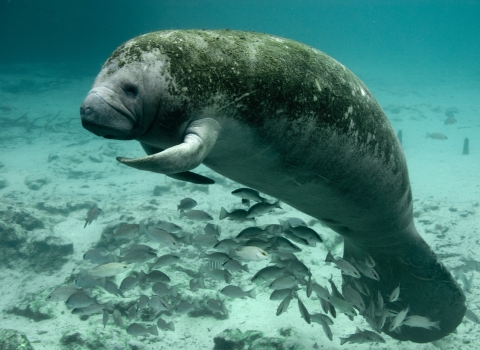Through a unique partnership, Alaska Pacific University (APU) along with U.S. Fish and Wildlife Service (FWS), Northern Latitudes Partnership (NLP), and Alaska Conservation Foundation (ACF) will launch an innovative course in APU’s professional development series that blends modern and ancient methodologies to increase collaboration in land management.
The 11-week course, titled “Indigenous Land Stewardship: Creating Meaningful Collaborations across Alaska,” begins this Friday, September 24. It will be team-taught and draw on experts from Indigenous communities who are leading dialogues on decolonization and racial equity, as well as professionals who work for or closely with Tribes and Indigenous organizations on science and conservation challenges.
“We are encouraged by partnerships like this, where Tribal experts are the rightful leaders in teaching about the stewardship of this beautiful land,” said APU Interim President Dr. Hilton Hallock. “This partnership also will present an incredible opportunity for our students to work and learn alongside Alaska Native leaders and federal partners. We train Alaska’s future leaders, and this course will help ensure our students approach their careers with respect, awareness, and cultural understanding.”
The course originated through an alignment of efforts. APU Elders Council member Wilson Justin saw a connection between APU's focus on being an Indigenous-serving university, his experience teaching in the FWS’s highly regarded Alaska Native Relations Training, and efforts within NLP, which is hosted by ACF, to build trust and collaboration among Tribes, agencies, and academia.
“The collaboration that has gone into designing this groundbreaking course is inspiring,” said Karen Cogswell, Acting Regional Director for the U.S. Fish and Wildlife Service in Alaska. “I look forward to this learning opportunity raising respect for the importance of two knowledge systems in conservation, and awareness that public lands are the homelands of Indigenous people who are the first stewards of our Nation’s fish and wildlife.”
Participants will gain an understanding of the impacts of colonization in Alaska and learn how knowledge systems can be utilized together for everyone’s benefit, including and especially the earth.
"We see this new course as being a key tool to help agencies and scientists work in more equitable and effective partnerships with Indigenous communities, something that is so critical as we all struggle to adapt to rapid and accelerating climate change climate change
Climate change includes both global warming driven by human-induced emissions of greenhouse gases and the resulting large-scale shifts in weather patterns. Though there have been previous periods of climatic change, since the mid-20th century humans have had an unprecedented impact on Earth's climate system and caused change on a global scale.
Learn more about climate change ," said Michael Barber, Executive Director of Alaska Conservation Foundation.
The course, offered virtually, is fully enrolled with a wait list. Registered attendees include: Tribal, federal, and state conservation and resource management agency employees; conservation non-profit representatives; APU students; and Alaska Native organization employees. The course will be offered again in 2022.


